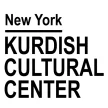Kurdish Cultural Festival of Paris, 2nd edition
The second edition of the Paris Kurdish Cultural Festival ran from May 6 to 12, in Paris and several sububs. It was organized by the Kurdish Democratic Council in France (CDK-F), in collaboration with the Institute for Reflection and Studies on Kurdistan (IREK), the Kurdistan Arts and Culture Association (ACK), the France-Kurdistan Association, and the Danielle Mitterrand Foundation; as well as the nearby communes of Bobigny and Sarcelles.
The week of activities displayed, shared, and promoted Kurdish culture. The festival was dedicated to Evîn Goyî, Mir Perwer and Abdurrahman Kızıl, the martyrs of the 23 December 2022 massacre.
 On the festival’s opening day, Kurdish dancers, theatrical performers, and musicians took to the streets in Paris’s 10th arrondissement,. The festive cultural parade ended at the arrondissement’s city hall, where French senators and city councilors welcomed Kurdish participants inside for the opening ceremony. Berivan Fırat, speaking on behalf of the CDK-F, greeted everyone, saluted Kurdish culture,and stated that the festival was dedicated to the martyrs of the December 23 racist attack.
On the festival’s opening day, Kurdish dancers, theatrical performers, and musicians took to the streets in Paris’s 10th arrondissement,. The festive cultural parade ended at the arrondissement’s city hall, where French senators and city councilors welcomed Kurdish participants inside for the opening ceremony. Berivan Fırat, speaking on behalf of the CDK-F, greeted everyone, saluted Kurdish culture,and stated that the festival was dedicated to the martyrs of the December 23 racist attack.
In attendance were Paris senator Rémi Féraud, Communist Party senator Laurence Cohen, 10th Arrondisssement council member Elie Joussellin, France-Kurdistan Association president Sylvie Jan, Acort president Ümit Metin, Chaldean institution representatives, Kabul Women’s Federation, Actit, and Sarcelles Municipality officials
Senator Féraud stated that he was honored to host the festival in his arrondissement and that “The 10thArrondissement is the home of the Kurds. It is an honor to host such an event in the municipality.” Paying tribute to three martyrs, other French politicians referred to the coming Turkish elections, observing that a defeat of President Recep Tayyip Erdoğan would promote cultural diversity both in Turkey and the diaspora. Toppling Erdoğan would, said Councilor Joussellin, “develop a Turkey open to the world. . . . Erdoğan is not a friend of culture. The far-right and the fascists have always wanted to defeat culture.”
The inauguration continued with the slogans “Martyrs never die” and “Jin, Jiyan, Azadi” and closed with performances by the Rojbin Paris Govend Team, the singer and musician Meral Alkan, and the singer Ulaş Kelaşîn.
The second day featured a brunch of traditional Kurdish dishes, with authentic flavors of Kurdish cuisine, renowned for its hearty and spicy dishes. The friendly atmosphere offered participants an opportunity to meet and to discuss Kurdish culture.
 On the third day, Şanoya Bajêr a Amedê (The Theater of the City of Diyarbakir) performed the play Tartuffe by Molière. Founded in 1990, the troupe continues its creations and performances despite repression. In 2016, the AKP government deprived the company was of its theater hall and its subsidies, but it continued its productions, testifying to the resilience of Kurdish artistic organizations and their persistence in bringing Kurdish culture and language to life.
On the third day, Şanoya Bajêr a Amedê (The Theater of the City of Diyarbakir) performed the play Tartuffe by Molière. Founded in 1990, the troupe continues its creations and performances despite repression. In 2016, the AKP government deprived the company was of its theater hall and its subsidies, but it continued its productions, testifying to the resilience of Kurdish artistic organizations and their persistence in bringing Kurdish culture and language to life.
On the fourth day, the town of Bobigny welcomed the Festival for a musical evening by several local artists, including dengbêj (Kurdish bards) performances. It also offered a buffet of Kurdish culinary specialties.
The fifth day was set aside for activities for children. At the Democratic Center of Kurdistan-Paris, they could discover Kurdish languages, music, and dances, learn traditional games, and explore music, dance, and art.
The sixth day featured a screening of Darên Bi Tenê (The Lonely Trees), a documentary that explores the tradition of dengbêj in Rojava. Produced by the Rojava Film Commune, the documentary pays tribute to the singers, poets, and storytellers who transmit from generation to generation Rojava’s stories, dances, and cultural heritage.
The final day brought together renowned Kurdish musicians for a major concert, including Ruken Yılmaz, Bajar, and Mehmet Atlı.
Ongoing during the festival was an exhibition of paintings dedicated to the Woman, Life, Freedom movement. It featured the work of three Kurdish women artists: Asli Filiz, Sarya Kaya, and Soniya Ahmed, whose work reflects Kurdish women’s struggle for freedom and their role in preserving Kurdish culture.
For more coverage, please visit the festival’s feeds on Twitter and Facebook.















